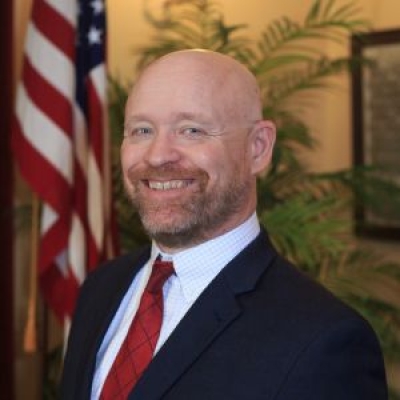Thank you Chairman Hayes, Vice Chair Brenner, Ranking Member Fedor, and members of the House Education Committee, for allowing me to testify in support of House Bill 2.
My name is Chad Aldis. I am the Vice President for Ohio Policy and Advocacy at the Thomas B. Fordham Institute, a nonprofit research and policy organization with offices in Columbus and Dayton. Worth noting given the subject matter of HB 2, Fordham’s Dayton office is also a charter school sponsor.
I’d like to start by commending the House for taking a leadership role on the issue of charter school reform. Despite bipartisan support for charter schools in much of the nation, they remain a deeply divisive issue in Ohio. My hope is that this bill could start to change that. Early reaction to the bill suggests that bipartisan support is possible. This would be a significant step forward as we work to ensure students are being well served regardless of the type of school that they attend.
Fordham has long focused on the need to improve accountability and performance in all Ohio schools. Last year, seeing an onslaught of troubling stories about charter schools, we commissioned research to learn more about the problems that the charter sector was facing.
Getting to the bottom of the issue was important to us because Fordham has long been a supporter of school choice—including charter schools. We believe that it’s critical for parents to have a variety of high quality educational choices.
Our research consisted of two separate reports that were released in December.
- The first was an analysis of the academic performance of Ohio charter school students conducted by CREDO (the Center for Research on Education Outcomes) at Stanford University. The results showed that, as a group, student achievement in Ohio charter schools isn’t where we need it to be. That being said, there were also some significant bright spots where charter schools are really making a difference for students.
- The second report was a look at Ohio’s charter school law. We asked Bellwether Education Partners, a highly respected national consulting firm with deep experience in charter school policy, to do an analysis of Ohio’s charter law and make recommendations for reform. The resulting report, The Road to Redemption, contained ten specific recommendations on ways to improve the quality of Ohio’s charter school sector as a whole.
If anyone would like a copy of one or both reports, I have some with me and can arrange other copies for you.
It is with this background, and Fordham’s commitment to quality charter schools, that I stand here in support of HB 2. HB 2 is a thoughtful approach to charter reform. It strikes a good balance between accountability and autonomy. Some of the strongest provisions include:
- Prohibiting sponsors from selling services to schools that they sponsor
- Requiring sponsors to disclose how they spend their sponsor fees
- Eliminating the ability of management companies to appeal to the sponsor if fired by the governing board of the charter school
- Requiring the compilation of academic achievement data for management companies
- Making it harder to engage in “sponsor hopping”
- Helping ensure charter school boards are more independent by requiring annual conflict of interest statements and independent fiscal officers
Of course, what would testimony be without some suggestions to make the bill even stronger—at least in the eyes of the person testifying? So here goes. We suggest that:
- All sponsors should be required to contract with ODE and to submit to the department’s sponsor performance review. ODE has put together a strong system of review for charter sponsors. It’s important that the provisions apply to all sponsors. (This provision is in the Governor’s proposal.)
- While the bill requires sponsors to disclose how they spend their money, the language in HB 2 should go a step farther—sponsors should be permitted to spend their money only on oversight and technical support. Charter sponsorship is about providing oversight and should not be a source of revenue for non-charter school related activities.
- Language should be added to make it clear that in its role as a sponsor, ODE is not required to accept low quality schools.
- Language should also be added to clarify that sponsors are permitted to close a school even if the school doesn’t fall under the state’s mandatory closure law. To be clear, this is already permitted now. Good sponsors undoubtedly do it when necessary. But it’s essential for everyone involved to realize that Ohio’s mandatory closure law is a bare minimum floor for performance and sponsors should absolutely set a higher bar.
- Finally, the Governor has proposed a number of funding changes that would allow charter schools to access additional funds. This is important. Good charter schools often struggle financially, especially in urban areas. I would encourage you to support those recommendations.
In conclusion, charter schools make a massive and meaningful difference in the lives of thousands of Ohio children—and the legislature must ensure that that difference is a positive one. I’m excited to see the House taking a leadership role in charter reform. Going forward, we are happy to do anything we can to assist this committee as it works to make sure that Ohio’s charter school law helps every child have access to a high quality education.
Thank you again for the opportunity to speak with you today. I am happy to answer any questions that you may have.



